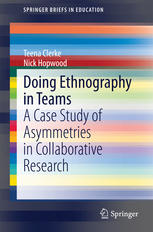

Most ebook files are in PDF format, so you can easily read them using various software such as Foxit Reader or directly on the Google Chrome browser.
Some ebook files are released by publishers in other formats such as .awz, .mobi, .epub, .fb2, etc. You may need to install specific software to read these formats on mobile/PC, such as Calibre.
Please read the tutorial at this link: https://ebookbell.com/faq
We offer FREE conversion to the popular formats you request; however, this may take some time. Therefore, right after payment, please email us, and we will try to provide the service as quickly as possible.
For some exceptional file formats or broken links (if any), please refrain from opening any disputes. Instead, email us first, and we will try to assist within a maximum of 6 hours.
EbookBell Team

5.0
88 reviewsThis uniquely in-depth book offers a blow-by-blow account of the sometimes problematic dynamics of conducting collaborative fieldwork in ethnography. Tracing the interplay between co-researchers at various points of contact in both professional and personal relations, the analysis draws out the asymmetries which can develop among team members nominally working towards the same ends. It details the often complex dialogues that evolve in an attempt to navigate conflicting interests, such as team members’ resistances to particular methodological ‘recipes’ or research protocols. The authors show that such debates can create an open forum to negotiate new practices.
A key element of this publication is that it goes beyond an analysis of more traditional power relations in research teams comprising members at different academic pay grades. As well as drawing attention to gender-related dynamics in research collaborations, the authors use themselves as an exemplar to demonstrate how differences in age, experience, knowledge, professional skills and background can be exploited to generate positive outcomes constituting much more than the apparent sum of their parts. In doing so, the authors reveal the delightful, surprising and yet challenging aspects of research collaboration that are often absent from the qualitative literature.